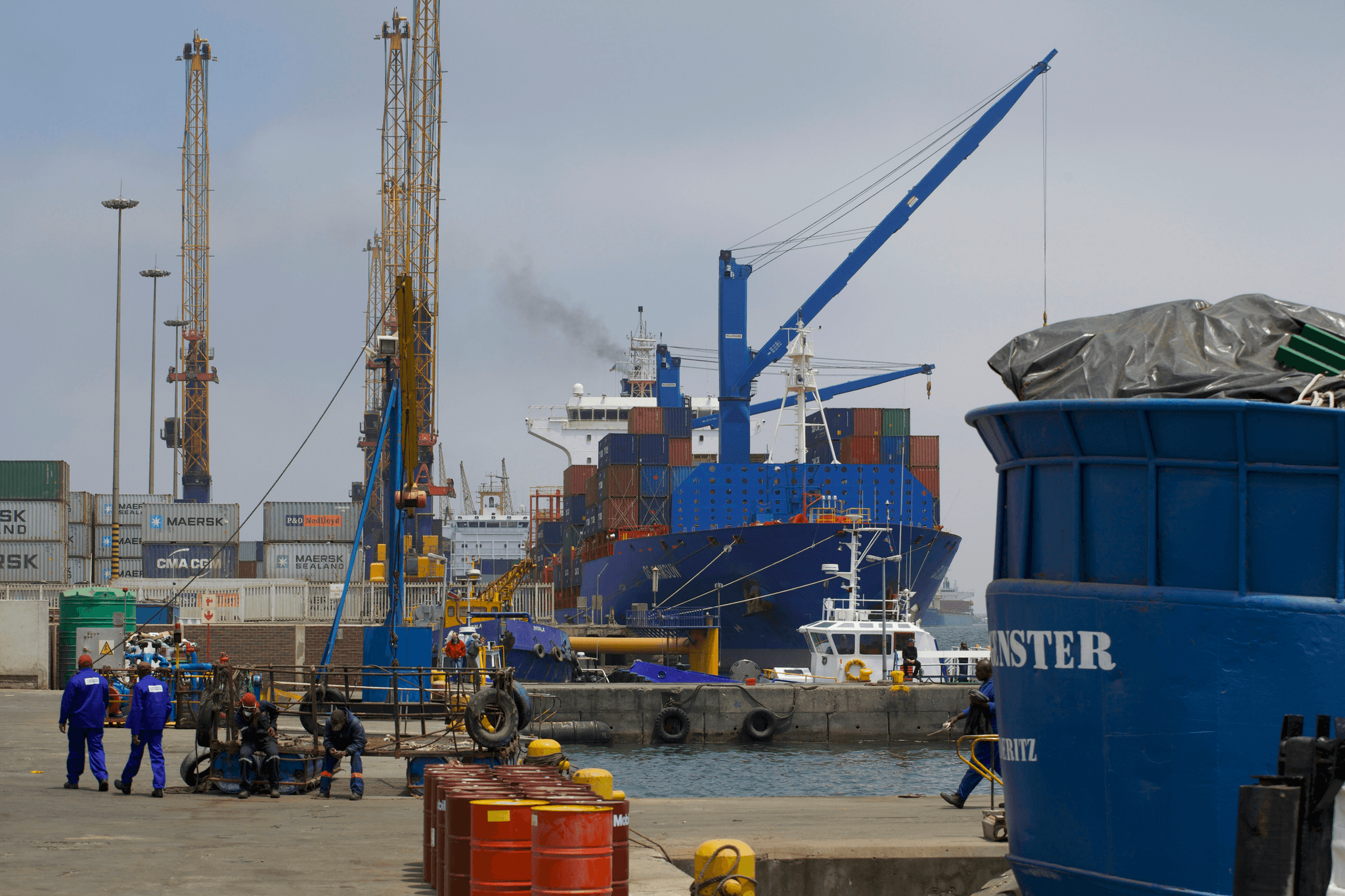Introduction

Navigating international trade can often feel like traversing a labyrinth, especially when dealing with critical documents such as the Bill of Lading (BL). This essential document serves as proof of shipment and ownership, acting as a key that unlocks your goods upon arrival. However, if you find yourself in the unfortunate situation where your Chinese supplier does not release the BL, it can lead to a cascade of complications that may leave you wondering what you should do if Chinese suppliers do not release BL?
Understanding the Bill of Lading Significance
The Bill of Lading is much more than just a piece of paper; it's the lifeblood of shipping transactions. It signifies that payment has been made and goods are on their way to you, essentially ensuring that you have legal claim over those products. Without this document, you're left in limbo—standing on the dock while your hard-earned money is tied up in products that may never reach your hands.
Why a Chinese Supplier Might Withhold BL
There are several reasons why a Chinese supplier might decide to withhold the BL from you. Perhaps they are facing financial difficulties or have concerns about payment security; after all, paying Chinese companies for products that never arrive can be a real fear for many buyers. Additionally, some suppliers might use this tactic to exert pressure for faster payments or additional terms—making it crucial to assess whether Does the Chinese Company exist? before proceeding further.
The Financial Implications of Non-Release
The implications of not receiving your BL can be significant and far-reaching financially. You could end up incurring storage fees at ports or losing out on potential sales while waiting for goods that may never arrive. In essence, challenges with collections become more pronounced when you're stuck without access to your merchandise; understanding these financial ramifications is crucial for any business engaged in international trade.
What to Do When BL is Not Released

When faced with the unsettling situation of a Chinese supplier not releasing the Bill of Lading (BL), it's crucial to act swiftly and strategically. The first step is to understand your immediate options and the potential ramifications of inaction. What you should do if Chinese suppliers do not release BL? Let's break it down.
Immediate Steps to Take
If you find yourself in a predicament where the BL is being withheld, your first course of action should be to contact the supplier directly. Politely inquire about the status of the shipment and express your concerns regarding payment for products that may never arrive. If communication fails or is unsatisfactory, consider reaching out to your shipping company for additional insights on whether they have any information regarding the shipment's status.
In parallel, check if there are any outstanding payments or documentation issues that could be causing delays. It's essential to clarify these points quickly, as misunderstandings can exacerbate tensions between you and your supplier. Lastly, consider consulting with a logistics expert who can provide guidance tailored specifically for dealing with international trade challenges.
Importance of Communication
Effective communication can be your best ally when navigating this tricky situation with a Chinese supplier who refuses to release the BL. Open lines of dialogue can often resolve misunderstandings before they escalate into larger disputes, especially if you approach discussions with clarity and professionalism. Ask direct questions like “Does the Chinese company exist?” or “What are the reasons for this delay?” This shows you're engaged and serious about resolving issues promptly.
Additionally, maintaining a calm demeanor during conversations will go a long way toward fostering cooperation from your supplier’s side. Remember that cultural differences might affect communication styles; patience and respect can help bridge those gaps effectively. Keep in mind that building rapport may lead to more favorable outcomes than aggressive tactics.
Document Everything
In situations where collections become challenging due to non-release of BL, meticulous documentation becomes essential evidence in any dispute resolution process. Start by keeping records of all communications—emails, messages, phone calls—related to your dealings with the supplier regarding their refusal to release the BL or any other relevant matters like payment terms or delivery schedules.
If things take a turn for legal action later on, having clear documentation will bolster your case significantly by providing tangible proof of what was discussed or agreed upon initially—especially useful if you suspect fraud or misrepresentation from suppliers who may not exist at all! Having everything documented also aids in assessing whether alternative approaches like mediation could be beneficial down the line.
Assessing the Situation

When faced with a situation where your Chinese supplier has not released the Bill of Lading (BL), it's crucial to take a step back and assess the circumstances. Understanding the context can help you navigate this tricky situation more effectively. After all, paying Chinese companies for products that never arrive is a nightmare no one wants to experience.
Investigate the Supplier's Reputation
Before taking any drastic measures, it's essential to investigate your supplier's reputation thoroughly. Look for reviews, testimonials, and any red flags that might indicate previous issues with other buyers. Remember, what you should do if a Chinese supplier does not release BL is often rooted in understanding their past behavior—reputation matters!
Utilizing platforms like Alibaba or Global Sources can provide insights into how trustworthy your supplier is. If they have numerous complaints or unresolved disputes, it could be time to reconsider your relationship with them. This investigation can save you from potential challenges with collections down the road.
Does the Chinese Company Exist?
Next on your checklist: does the Chinese company even exist? It may sound absurd, but some businesses operate under false pretenses or are simply non-existent entities designed to scam unsuspecting buyers. Conducting due diligence through business registration databases or local chambers of commerce can help verify their legitimacy.
If you find discrepancies in their contact information or business registration details, alarm bells should start ringing! What you should do if a Chinese supplier does not release BL becomes clearer once you ascertain whether you're dealing with a legitimate business or just smoke and mirrors.
Understanding Possible Reasons for Delay
Understanding possible reasons for delay is crucial in determining your next steps when facing this frustrating situation. Sometimes delays occur due to logistical challenges such as shipping issues or customs clearance problems—factors that might have nothing to do with dishonesty on your supplier’s part. However, knowing these possibilities helps frame your discussions moving forward.
On the flip side, if delays seem suspiciously frequent without adequate explanation, it’s time to dig deeper into their operations and communication practices. This knowledge will empower you as you explore alternative approaches to resolving these issues rather than jumping straight into confrontation mode—or worse yet—legal action over something that could be resolved amicably.
In summary, assessing the situation requires careful scrutiny of various elements surrounding your transaction with the Chinese supplier who has withheld the BL. By investigating their reputation, verifying their existence, and understanding potential reasons for delay, you'll be better equipped to address this challenging scenario head-on.
Legal Considerations and Support

When you find yourself in a situation where your Chinese supplier has not released the Bill of Lading (BL), understanding your legal options is crucial. This can be especially daunting if you’re paying Chinese companies for products that never arrive, leaving you wondering about your next steps. It’s important to know when to seek help and how to navigate the complexities of international trade laws.
When to Contact AC&E for Help
If you're grappling with the question, What should you do if a Chinese supplier does not release BL? it might be time to reach out to AC&E for assistance. They specialize in international trade disputes and can provide guidance tailored specifically to your situation. Early intervention can often prevent further complications, so don’t hesitate to get in touch if things seem murky.
Identifying whether the Chinese company exists is another key factor; if they are unresponsive or elusive, AC&E can help verify their legitimacy. They have resources at their disposal that allow them to conduct thorough investigations into suppliers’ backgrounds and reputations, which is invaluable when you're facing challenges with collections. Remember, timely legal support can make all the difference in resolving disputes efficiently.
Navigating International Trade Laws
Understanding international trade laws is essential when dealing with suppliers overseas, particularly in China. These regulations govern transactions and can vary significantly from country to country; ignorance could cost you dearly if things go south. Familiarizing yourself with these laws will empower you as a buyer and help protect your interests when negotiating terms or addressing issues like non-release of BL.
If you've been paying Chinese companies for products that never arrive, knowing your rights under international law becomes even more critical. This knowledge will allow you to advocate effectively for yourself while minimizing potential losses due to delays or miscommunication with suppliers. Additionally, awareness of trade regulations may open up alternative approaches for resolving disputes without escalating them into costly legal battles.
Collecting Evidence for Legal Action
If negotiations fail and you're left contemplating legal action due to non-release of BL or other issues, gathering evidence is paramount. Document everything—emails, contracts, payment receipts—anything that supports your claim against the supplier should be meticulously organized and preserved. This evidence will serve as a cornerstone in any potential dispute resolution process or court case.
When assessing whether it's worth pursuing legal action against a supplier who has failed on their end of the deal, consider both the financial implications and challenges with collections involved in such cases. The more robust your documentation is regarding what went wrong—be it delays or outright failures—the stronger your position will be should litigation become necessary. In short: collect evidence like it’s going out of style; it may just save your business from unnecessary headaches down the road.
Challenges with Collections

When faced with the unfortunate situation of a Chinese supplier not releasing the Bill of Lading (BL), navigating the challenges with collections can feel like trying to find a needle in a haystack. As a buyer, it’s crucial to understand your rights in this scenario. Knowing what you should do if a Chinese supplier does not release BL is the first step towards reclaiming your investment and ensuring future transactions are more secure.
Identifying Your Rights as a Buyer
As a buyer, you have specific rights that protect you in international trade transactions. If you've paid for products that never arrive, you have every right to demand accountability from your supplier. Understanding these rights can empower you to take necessary actions against suppliers who might be dodging their responsibilities or, worse yet, operating under questionable legitimacy—prompting the question: does the Chinese company exist?
Exploring Collection Agency Options
If direct communication fails and you're left holding an empty bag after paying Chinese companies for products that never arrive, it might be time to consider professional help. Collection agencies specialize in recovering debts from uncooperative suppliers and can often navigate complex international laws better than individuals can on their own. However, it's essential to explore various collection agency options thoroughly; not all agencies are created equal, and some may charge exorbitant fees for their services.
Assessing the Cost-Effectiveness of Legal Action
Before diving headfirst into legal action against your supplier, it's wise to weigh its cost-effectiveness carefully. Legal battles can be lengthy and expensive; thus, understanding whether pursuing litigation is worth it compared to other alternative approaches is vital. In many cases, negotiating directly with your supplier or utilizing mediation services may yield quicker results without breaking the bank while dealing with challenges related to collections.
Alternative Approaches to Resolve Issues

When faced with the daunting situation of a Chinese supplier withholding the Bill of Lading (BL), it's crucial to explore alternative approaches to resolve issues. The stakes can be high, especially when you’re paying Chinese companies for products that never arrive. Understanding your options can help you navigate this tricky landscape and potentially salvage your business relationship.
Negotiating with the Supplier
One of the first steps in addressing the non-release of BL is to engage in direct negotiations with your supplier. Open communication can sometimes lead to a resolution that benefits both parties, especially if misunderstandings are at play. Before diving into discussions, however, ensure you have done your homework—does the Chinese company exist? Knowing their reputation can inform your negotiation strategy and help you determine how flexible they might be.
During negotiations, it’s important to remain calm and professional, even if frustrations run high due to challenges with collections or delays in receiving goods. Clearly outline what you're seeking—a prompt release of the BL—and express your willingness to work together towards a solution. Remember that building rapport can often lead to better outcomes than adopting an adversarial stance.
Utilizing Mediation Services
If negotiations stall or become contentious, consider utilizing mediation services as an alternative approach. Mediation involves a neutral third party who facilitates discussions between you and your supplier, aiming for a mutually agreeable resolution. This method can be particularly effective when dealing with international disputes where cultural differences may complicate direct communication.
Mediation services not only provide structure but also help in navigating complex issues like payment disputes or product delivery problems without resorting to legal action immediately. By engaging a mediator who understands both Western and Chinese business practices, you increase your chances of resolving conflicts amicably while keeping future relationships intact—an essential consideration when paying Chinese companies for products that never arrive.
Considering Alternative Shipping Methods
If all else fails and resolving issues through negotiation or mediation proves ineffective, it may be time to consider alternative shipping methods for future transactions. While this doesn’t resolve the current situation directly, it prepares you for better outcomes down the line by minimizing risks associated with unreliable suppliers who might not release BLs on time or at all.
Exploring different shipping options could involve working with more reputable logistics providers known for their reliability in handling international shipments or even diversifying suppliers altogether—after all, does the Chinese company exist? If there are doubts about their legitimacy or capacity to fulfill orders consistently, diversifying could save you from future headaches related to challenges with collections.
In summary, while dealing with a supplier withholding BL is undoubtedly stressful, employing these alternative approaches may just pave the way for smoother sailing ahead—literally and figuratively!
Conclusion
Navigating the complexities of international trade can be daunting, especially when faced with a situation where a Chinese supplier does not release the Bill of Lading (BL). Understanding what you should do if a Chinese supplier does not release BL is crucial for protecting your interests. Immediate actions, clear communication, and documentation are key components that can help mitigate potential financial losses.
Recap of Immediate Actions to Take
When confronted with the challenge of paying Chinese companies for products that never arrive, your first step should be to communicate directly with the supplier. Ask for clarification regarding the delay and express your concerns about not receiving the BL. Document every conversation and correspondence; this record could prove invaluable if you need to escalate the issue later on.
If it becomes evident that the supplier is unresponsive or evasive, consider investigating whether the Chinese company exists as a legitimate business entity. This can help you ascertain if you’re dealing with a reputable supplier or potentially falling victim to fraud. Remember, documenting everything will strengthen your position should legal action become necessary.
Long-Term Strategies for Supplier Relations
Building strong long-term relationships with suppliers is essential in international trade to avoid future issues like those arising from challenges with collections. Regular communication and establishing trust can go a long way in ensuring smoother transactions down the line. Consider implementing regular check-ins or audits of your suppliers’ operations to ensure they remain reliable partners.
You might also explore alternative approaches such as diversifying your supplier base or using escrow services when making payments for goods. By spreading risk across multiple suppliers, you reduce dependency on any single entity and mitigate potential losses from non-release situations. Establishing solid contracts that outline clear terms regarding BL release can also fortify these relationships against future disputes.
Importance of Legal Support in Disputes
In cases where disputes arise—especially concerning what you should do if a Chinese supplier does not release BL—having legal support can be invaluable. Navigating international trade laws requires expertise; an attorney specializing in this field can provide guidance tailored to your specific situation and jurisdictional nuances. Moreover, collecting evidence for legal action becomes much easier when you have professional assistance at hand.
Legal support is particularly important when dealing with challenges related to collections or navigating complex contractual obligations with suppliers overseas. If negotiations fail, having an attorney who understands international law may be necessary to pursue further action effectively—whether through mediation or litigation options available under relevant jurisdictions. Ultimately, investing in legal support ensures that you're equipped to handle any disputes efficiently while safeguarding your business interests.
